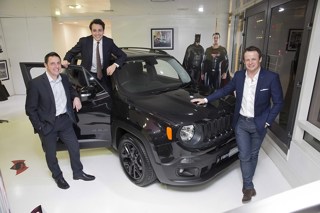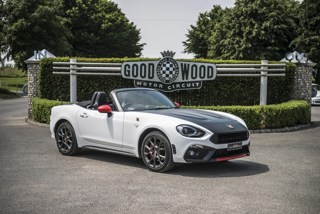The recent events at Rover underline how easily this industry panics. Whatever your personal opinion of Rover, it makes perfectly good cars - even if they cannot be called truly excellent - and it will continue to have a loyal following in the used market for many years.
To my mind the greatest danger for Rover residuals would be the lack of a comprehensive parts distribution network. Without that the market would undoubtedly collapse.
However, at this stage there appears to be no danger of that happening.
For starters, Rover does not produce all its own parts. Secondly it shares many parts with other manufacturers and, finally, nobody in the aftermarket is going to walk away from a business that is worth millions. There are hundreds of thousands of Rovers on the road - all requiring service.
So it looks as though there will be no problem in sourcing, from windscreens and starter motors to body panels, for many years to come. The parts operation will continue for as long as there is demand.
As far as the question of obsolescence is concerned, the harsh truth is that, in reality, 80% of the UK car parc is already obsolete - on the criteria that they are no longer produced as new cars. Nobody would walk away from a Mk 3 Astra, a Mk 1 Mondeo or a Vauxhall Cavalier purely on the grounds that new ones are no longer rolling off the production line.
In another three years time a Rover 45 will still sit nicely alongside a similar age Escort or a Mk 1 Nissan Almera. Then it will sell purely on its own merits as a used car.
For decades the forecasting business has been plagued by similar scares. Back in the early Nineties there were fears over catalyst-equipped cars. The view was that the cat would prove so unreliable that when they reached the used market, cat-equipped cars would be worth considerably less than those without.
In the event nothing happened and the story was quietly forgotten.
More recently, in the new car market, there was a story that people would hold out of the marketplace in 1999 in order to wait for Millennium-registered cars. I can't say I've noticed massive queues of new car buyers now that we're into 2000.
Then there was the 'Millennium meltdown' plum where onboard computers would fail and the more sophisticated cars would suffer in the used market as buyers realised they couldn't be trusted. That one has done the rounds before in various forms - previously people claimed the difficulties of backyard maintenance would hit the values of cars with the most sophisticated electronics. Again there is no sign of this having come to fruition.
In reality it is always the same factors that influence residual values – the buyer's ability to pay and the intrinsic desirability of the car.
So, there will be no meltdown of Rover. What will happen is a gentler decline as it is no longer an improving brand. Already there has been some downturn in the future residuals because, in Monitor, we have removed the factors pushing values upward.
The cars will no longer be developed so Rover has switched from a recovering brand into a static and slowly declining image. But even here there is no disaster story. Reduced production will go some way towards balancing supply and demand – it's still bad news for the scaremongers.

















Login to comment
Comments
No comments have been made yet.